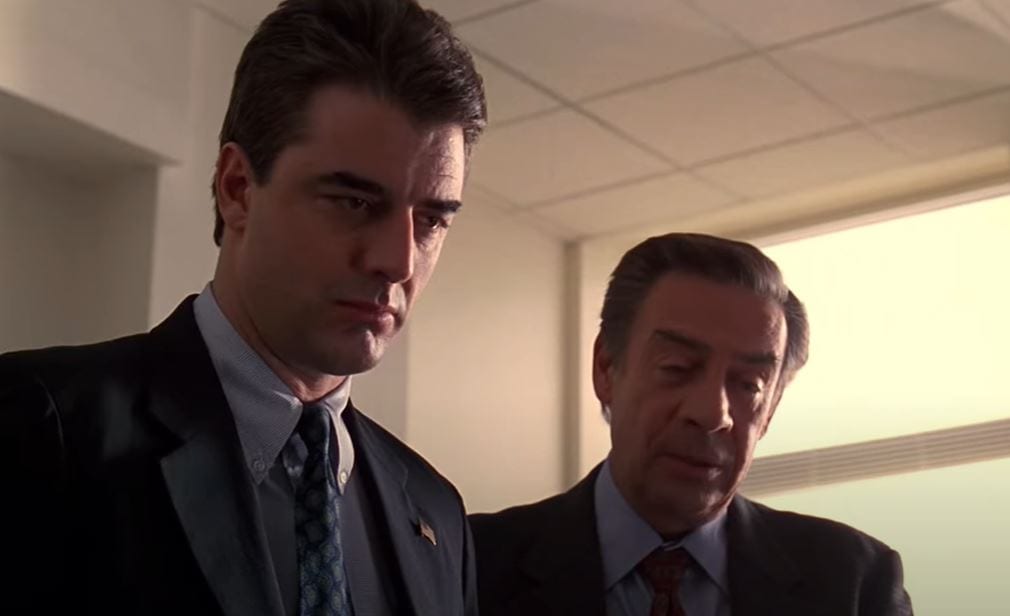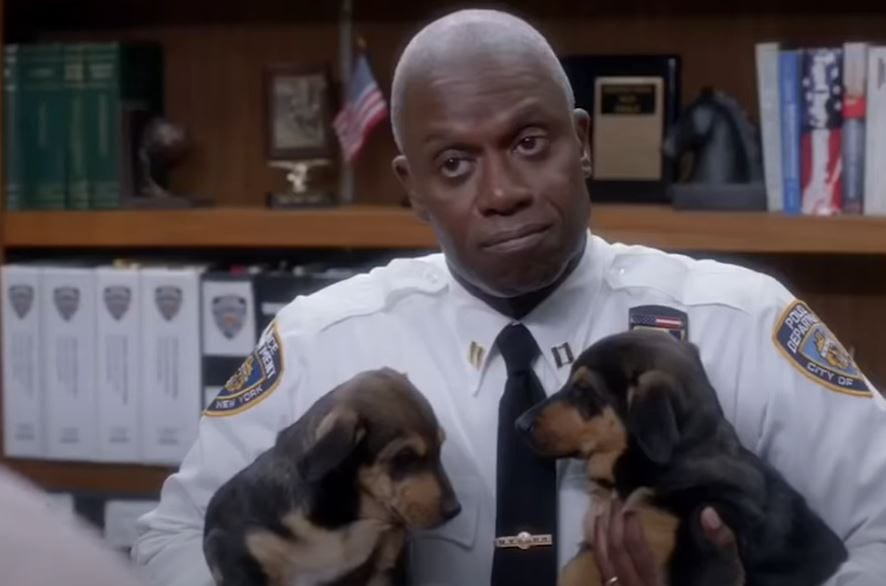Since the days of Dragnet and Andy Griffith some 60-70 years ago, cop shows have been a regular staple on television. Police became such a staple of television that a show without one feels surprising. Every show has an episode about them. They all have a cop character appear at some point. Detectives come grizzled and charismatic, beat cops are heroic, and task forces “do what needs to be done” to keep their cities safe from the thuggish masses. They chase killers, gangsters, rapists, and every other undesirable of the world. Every cop story in the world has been told a hundred times over. No one cares. There have been six different Law and Order series alone.
We all grew up watching cop shows. If you grew up white and American, you matured with the image of law enforcement as the good guys, the ones who, even at their most extreme, always worked for the benefit of the people.
With the Black Lives Matter protests currently marching daily through the streets of American cities, people are starting to think about police in a way they never have before. Public opinion has shifted in unheard of numbers towards negative opinions of cops. Demands for reform rage on. It’s a serious problem that doesn’t seem to be going anywhere. Showrunners for the many cop shows on TV are being forced to address their portrayals of police in the face of such wanton brutality from real life cops. COPS and LivePD have been canceled.
The time has come for the television industry to take a long look at the shows they air and consider both their own part in allowing police brutality to go unquestioned, as well as the future of cop shows.

It took a long time before questionable portrayals of police on television allowed even a glimpse of the truth revealing itself on streets around America today. Shows like The Wire and The Shield portrayed police officers and their larger departmental structures as corrupt, lawless, selfish, and serving their own self-interests over those of the communities they served. Even then, they were viewed as necessary. Vic Mackey was clearly a bad person who needed to be stopped, but he and the Strike Team were still getting “results” while the bureaucracy stood in the way.
The Wire certainly tried and somewhat succeeded in showing a realistic portrayal of the harm police do to the community. They were greedy, focused solely on funding, and caused considerable long-term harm to the streets of Baltimore. There was no lone “bad apple,” the entire police system was portrayed badly, with the few good apples forced to corrupt themselves or lose their jobs. It was by far the most honest portrayal of police I’ve personally ever seen on television, and an important reason why The Wire proves just as relevant today as it was at the time.
However, we were still following the police’s perspective of things. McNulty, Kima, Carver, Daniels, these were all still the protagonists of the show, with the storylines revolving around their wasted efforts to make Baltimore safer and put a real dent in the crime plaguing the city. Even when a show mostly got it right, you can argue the perspective was wrong.
Also, The Wire tended to be drowned out by the numerous other cop shows lionizing the efforts of police forces. It never had anything close to the ratings the likes of Law and Order or NCIS did. Comedies like Brooklyn 99 portray cops as lovable goofs. Every show has that one cop portrayed as the good guy. Hank was an often offensive asshole, but he’s the good guy catching Walter White. Parks and Recreation had to have a Dave. We take it for granted that the good guy cop will exist on just about any show.
Even when the majority of copaganda shows bother with an episode showing corruption, brutality, or racial profiling, the problem is always portrayed as an outlier. The problem is always a rogue bad guy who occasionally exists rather than the systemic, everyday issue it is. Few are the Fresh Prince of Bel-Airs who show racial profiling and say, “this always happens and isn’t a rare problem.” Now the television industry is being forced to look at their portrayals of police. Everyone, from the most serious cop drama to the sitcom planning a Very Special Episode, must rethink decades of normalization. They have to face reality for the first time in the entire existence of television.
So now we’re left to wonder how exactly they will do so.
Brooklyn 99 recently scrapped 4 episodes that had already been written in order to rethink its new season. Ultimately, though, how can they rewrite a comedy cop show to not portray the current racial protests as a revolution against the minority, with the majority of cops still being portrayed as good guys? That is the problem facing all cop shows. If nothing else, the current protests are proving to everyone how this is not a problem of isolated officers breaking the law. Cop shows have always portrayed the problem this way, but to do so moving forward would, frankly, be irresponsible and provide an excuse to ignore the widespread racism and brutality of American police.
The easy answer would involve having the 99 quit and do something else. Does anyone really think that will happen, though? Law and Order could presumably dedicate a season to prosecuting cops or something, but that just continues the façade of police racism and brutality as a rogue problem. Presenting a utopia of fair police does the same and is basically the problem with cop shows right now.

Personally, I think the only way to responsibly handle police on TV moving forward is unabashed criticism that can’t properly occur through shows following police. We need to go through a period where cops are treated authentically. That doesn’t mean every cop must be portrayed as a brutal racist, or that they must always be villains. We do have to eradicate the default position of police as the good guys, though.
Perhaps the most important way to initiate this change involves promoting different voices to head networks and shows. Much of the insistence on police as heroes comes from the disparity of white voices to everyone else. White men overwhelmingly make up network leadership, showrunners, and writer’s rooms. Since we don’t experience police brutality and racism, we don’t consider it in our default depictions of police in the shows making it to air. If we start promoting diverse voices, and especially Black voices, we will have different experiences that inevitably portray police more authentically.
Does this leave room for a comedy like Brooklyn 99? Or the default good guy cop in an ensemble? Does it leave room for shows like Law and Order to promote state and federal prosecutors when we know how corrupt prosecutors enable police brutality? These are the questions to answer. Right now, I want to say that it doesn’t, and that’s a good thing, because real world change is more important than preserving police on TV.
Unfortunately, I don’t think anyone will genuinely try for change. I’m sure every cop-oriented show will pay lip service to the issue. They have no choice. You can expect the usual “these cops were bad and should be punished” episodes wrapped around the typical hero worship. Maybe some shows will craft storylines around fighting precinct corruption or corrupt district attorneys. Meanwhile the problem will continue, and nothing will actually change about the portrayal of police. They are too embedded in the fabric of the tropes showrunners use to weave their shows together.
In the end, money wins out and the TV world is cowardly. You can guarantee that the first show to genuinely berate police and portray them as villains will face severe backlash. That backlash will scare off everyone else. The pressure will dissolve, and we’ll be back to normal by 2022. If the coronavirus pandemic halts TV production long enough, we may not even see any change to how TV treats cops.
Audiences have the power to demand more. We must demand more and tear down long-dead stereotypes and institutions within TV shows, the entertainment industry, and the world as a whole.

